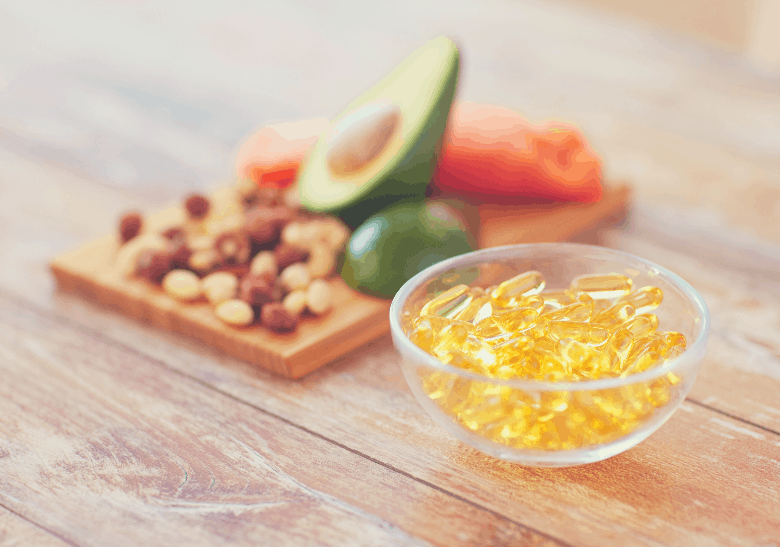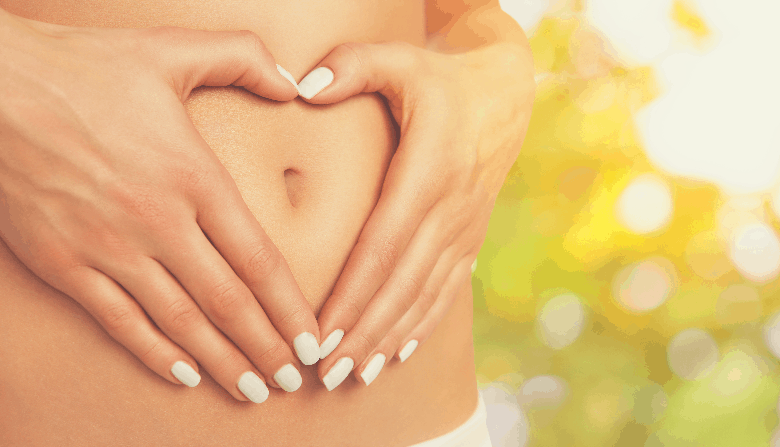Many of us are always looking to be healthier. We try new workout routines, new diets, and even take new supplements in the hopes that aging will not be too cruel to us.
After all that dieting and working out, we may take a look at ourselves in the mirror and figure that everything’s good.
However, you may be overlooking something important. What’s going on inside your body is just as important, which is why you need to know about the health benefits of probiotics.
By taking the time to learn about probiotics now and understanding how they can help you, better long-term health could very well be yours to enjoy for many years to come.

Why You Need to Keep Watch over Your Gut Health
Before we talk at length about probiotics, let’s first take some to discuss your gut health and why it’s something you really need to start paying closer attention to.
Let’s start with the more obvious benefits of having a healthy gut.
You obviously don’t want to go through your day feeling uncomfortable. For many, even the idea alone of using the toilet at work is frightening. Now imagine having to use it multiple times during the day because your stomach has betrayed you.
With a healthy gut, your digestive system can remain in fine working order and not inconvenience you as you go about your day.
Having a healthy gut also ensures that you’ll be able to get the most out of the food you are consuming. If you’re into bodybuilding or just looking to bulk up for other personal reasons, you need to absorb everything you can from the food you eat. That will be easier to pull off if your gut is in good health.
Interestingly enough though, the benefits of having a gut in prime condition go beyond reducing the number of unexpected bathroom trips and better nutrient absorption.
The Benefits of Having a Healthy Gut You May Not Know
Speaking recently to Time, Dr. Tara Menon, a gastroenterologist at the Ohio State University Wexner Medical Center, talked about the bacteria present in a person’s gastrointestinal tract. According to Dr. Menon, we have “trillions of bacteria” living in our gastrointestinal tract and these microorganisms essentially help us maintain a delicate type of balance that allows us to remain healthy.
That collection of microorganisms present in the digestive system is known as the microbiome or just the gut.
So, how can we tell if our gut is healthy?
Dr. Gail Hecht, the chair of the American Gastroenterological Association Center for Gut Microbiome Research & Education, also spoke to the aforementioned site and shared something very interesting about what a healthy gut is expected to look like.
According to Dr. Hecht, when you closely examine the gut of someone considered healthy, you’ll notice that his/her microbiome is full of different types of microorganisms. Dr. Hecht refers to the collection of microorganisms as “diverse.”
Contrast that with what you’ll likely see in an unhealthy gut and the difference is easily noticeable. Dr. Hecht says that there’s “less diversity” present in an unhealthy gut. Potentially even more concerning is that types of bacteria associated with diseases are also more abundant in those unhealthy microbiomes.
There’s even more to know about the bacteria you have in your gut.
As the article further details, some of those types of bacteria that are associated with diseases have some concerning connections. Some of the bacteria in your gut have been linked to different types of cancer, diabetes, heart disease, and even multiple sclerosis.
If a good balance does not exist among your gut bacteria, that can also lead to different parts of your body experiencing inflammation. Even your mental health can be affected if something’s not right with your gut.
A lot of research still needs to be completed to figure out exactly what is going on in our guts, but the recent studies are certainly indicating that having a healthy gut is crucial to leading a healthy life.

What Are Probiotics?
So, now that we know more about why it’s important to keep your gut healthy, we now have to find out how to do exactly that.
Some of the things we can do to improve the condition of microbiome are no longer accessible to us now that we’re adults because they were only available when we were still in the womb or while we were babies.
You can still do things like expose yourself to different types of environments, but that may not be enough if your goal is to create a truly diverse microbiome inside your body.
This is where the health benefits of probiotics can help.
Probiotics have actually been around for a long time. According to the National Center for Complementary and Integrative Health, the concept of probiotics itself was introduced way back in the early 20th century by Nobel laureate Elie Metchnikoff.
It was Metchnikoff who put forth the idea that consuming certain microorganisms could be good for people. These microorganisms that were said to be good for us eventually became known as probiotics and the term itself translates to “for life.”
The meaning of the term probiotics should already tip you off to what they are intended for. Essentially, products that contain probiotics feature the microorganisms that you want inside your gut.
As established earlier, healthy people have different kinds of bacteria in their gut. You can effectively increase the number of bacteria types you have in your gut by consuming probiotics. Among the types of microorganisms you are putting into your body by consuming probiotics are Bifidobacterium and Lactobacillus.
What Are the Different Types of Probiotic Products?
Okay, so now that we understand that probiotics are good for you and your gut in particular, you may be wondering where you can get them. The good news for you here is that probiotics are actually quite easy to find. You may even be regularly consuming them already without you knowing about it.
Probiotic Foods
If you want to introduce more probiotics to your body, one of the most effective ways to do so is through consuming certain foods. To be more specific, you will want to target foods that have been fermented in some way or at least feature some fermented ingredients.
Fermented foods are great sources for probiotics. During fermentation, the foods undergo a process that is known as lactofermentation. According to Harvard Health, this is the process that brings bacteria into the picture. The bacteria consume the starches and sugars present in the food.
Once the bacteria have fed on the starches and sugars, they will produce lactic acid. Thanks to that process, you will be able to find more types of the so-called “good” bacteria in the foods that are being fermented.
It is worth noting though that not all fermented foods contain probiotics. You may remember that fermentation is a part of the beer and wine making processes. Unfortunately, the probiotics are removed from those beverages during the production process, so no, you can’t expect them to be sources of good bacteria.
These other consumables can provide you with the probiotics you need though.
Yogurt
I mentioned earlier that you may already be consuming probiotic products regularly without knowing it and that’s because a lot of people enjoy some yogurt every now and then. Some people prefer to eat it on its own while it’s still nice and cold while others use it as an ingredient in cooking.
You can’t just reach for any type of yogurt though. According to Dr.Axe.com, the best types of yogurt for seekers of probiotics are the ones that come from the milk of grass-fed goats or sheep. It would also be best if you’re eating organic yogurt.
Cultured or Fermented Milk
While shopping in your grocery’s dairy aisle, you may have also noticed some small bottles of milk that are usually topped with a bit of foil. That product is known as cultured or fermented milk and typically, a small bottle contains plenty of probiotics. Fermented milk has a flavor that some may struggle with, but because many variants are sweetened, you may as well give one a try.
Apple Cider Vinegar
Some of the yeasts present in apple cider can ferment over time and that’s why apple cider vinegar can also be a good source of probiotics. Not everyone is a fan of apple cider vinegar though given its sour taste. To combat that, you can use it as an ingredient in salad dressings and balance out its sour flavor with other ingredients.
Kimchi
Kimchi is a Korean staple food that has gained popularity in other parts of the world. It can be a bit spicy, but the earthier flavor does shine through, which is why many people have taken a liking to it. You can enjoy it as a side dish during meals or even use it as a kind of filling for lettuce wraps that also contain Korean barbeque.
Tempeh
Tempeh is a bit different from the products listed above because it can serve as the centerpiece of your meal. This versatile product made from fermented soybean can be fried, baked, and even grilled. Tempeh’s flavor will take some getting used to, but if you grow fond of it, you can give it a larger role in your regular diet.
Probiotic Supplements
You can also get your probiotics from supplements, though Harvard Health does offer some words of caution about them. Since those supplements are not as closely monitored by the Food and Drug Administration, you can’t always be sure about the quality of their contents.
It’s always best to be safe than sorry. In this case, consult with your doctor first before you start taking any probiotic supplements. Take the time to secure your doctor’s approval prior to regularly consuming any of the currently available probiotic supplements.
Probiotic Creams
Yup, you can also get your probiotics from topical creams.
Compared to the supplements and foods though, they are not quite as useful for the purposes of creating balance inside your gut. According to Elle, topical creams with probiotics are good nourishing for your skin. They won’t do as much for your gut however.
If you’re after the health benefits of probiotics that positively impact your gut, stick to the supplements and foods.
What Are the Health Benefits of Probiotics?
The most important thing that probiotics can do for your body is simply balance out the bacteria in your gut. We’ve already touched on the importance of having a diverse collection of bacteria inside your body’s microbiome and consuming probiotics that feature all kinds of microorganisms will only improve that balance further.
Admittedly, simply stating that balancing out the type of bacteria you have in your gut can be simplistic, so let’s explore the specific benefits of that.
Probiotics May Help You Avoid Digestive Problems
If you’ve been forced to make way too many trips to the bathroom recently because you’re suffering from the effects of diarrhea, it’s a good idea to eat some foods that contain probiotics.
Notably, people who need to take antibiotics may experience diarrhea because of the medicine that’s been prescribed to them. Antibiotics target specific organisms in your body, but they can also deplete some of the good bacteria in there.
According to Healthline, you can combat antibiotic-induced diarrhea by consuming more foods with probiotics, provided of course that your doctor says you can eat them.
You can also fight off irritable bowel syndrome with a bit of help from probiotics.
Per Harvard Health, probiotics can also help with certain digestive tract issues including Crohn’s Disease and ulcerative colitis. You may even be able to use it to help with constipation.
Probiotics May Help Improve Heart Health
Beyond your gut, probiotics could also positively affect other parts of your body such as your heart. Some studies have shown that consuming products with probiotics can reduce the so-called “bad” cholesterol while others have resulted in the “good” cholesterol level being raised.
Even your blood pressure may be lowered a bit if you decide to regularly consume probiotic products.
Probiotics May Help Improve Mental Health
Somewhat surprisingly, there are also studies hinting at how probiotics can improve a person’s mental health. Different strains of Bifidobacterium and Lactobacillus can have a positive impact on individuals dealing with anxiety, depression, and a variety of other mental health issues.
As you may recall from earlier, Bifidobacterium and Lactobacillus are among the many microorganisms that you can find in probiotics.
Probiotics May Help Improve Vaginal Health
The Lactobacilli strains that you’ll often find in probiotics are not just useful for improving gut health. Women can get an additional benefit from them as they can help get rid of bad microorganisms that may be present around the vagina.
What Are the Side Effects of Probiotics?
Generally speaking, you don’t need to worry about consuming probiotic foods if you’re in good health. The only side effect you really have to worry about is probably some gas, according to the National Center for Complementary and Integrative Health. You still need to keep your allergies in mind before you eat any of those probiotic foods though.
Things aren’t quite as simple if you’re sick or if you recently had surgery. If you’re in either of those groups and you’re thinking about eating probiotic foods, you should go ahead and ask your doctor about doing so first. By failing to take that precautionary measure, you could be opening up yourself up unnecessarily to a potential infection.
When it comes to taking probiotic supplements, you should always consult your doctor first. The Mayo Clinic has provided additional reminders for you to keep in mind if you’re considering taking probiotic supplements.
According to the Mayo Clinic, you should be careful about consuming probiotic supplements if you’re taking antibiotics or any other meds that are affecting your immune system. They also note that you should be careful with the supplements if you either have pancreatitis or if you’re currently receiving treatment for a fungal infection.
The Mayo Clinic also notes that probiotic supplements may not be for you if you have a weaker immune system than the average person and if you are prone to contracting infections.
How Can Probiotic Products Be Made More Effective?
If you’re going to introduce more probiotics to your body, you might as well get the most out of them, right? To do that, you will need to do two simple things.
First off, Good Housekeeping notes that the good bacteria contained within probiotics may exit your body if you don’t consume those products often enough. Try to get probiotics into your body on a daily basis to prevent that.
For those taking probiotic supplements, it’s not enough to take them regularly. You should also follow the instructions carefully. Take the amount that the label indicates and also store the supplements in the way instructed by the manufacturer.
Keep up those two habits and you should be able to consistently get the most out of the probiotic products you’re consuming.
Conclusion
A lot of us don’t realize how important it is to keep our guts healthy, but as this article highlights, that part of your body being imbalanced can cause a litany of problems. To save yourself from those potential problems and just improve your overall health, consuming your fair share of probiotics is a good move.
The health benefits of probiotics are numerous and it’s up to you to take advantage of them.



